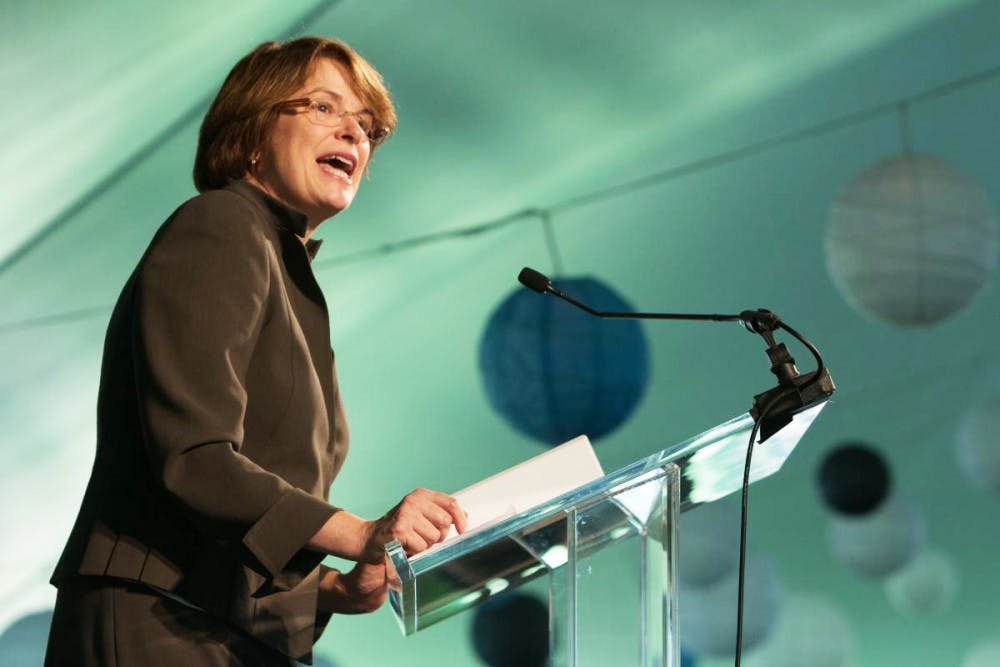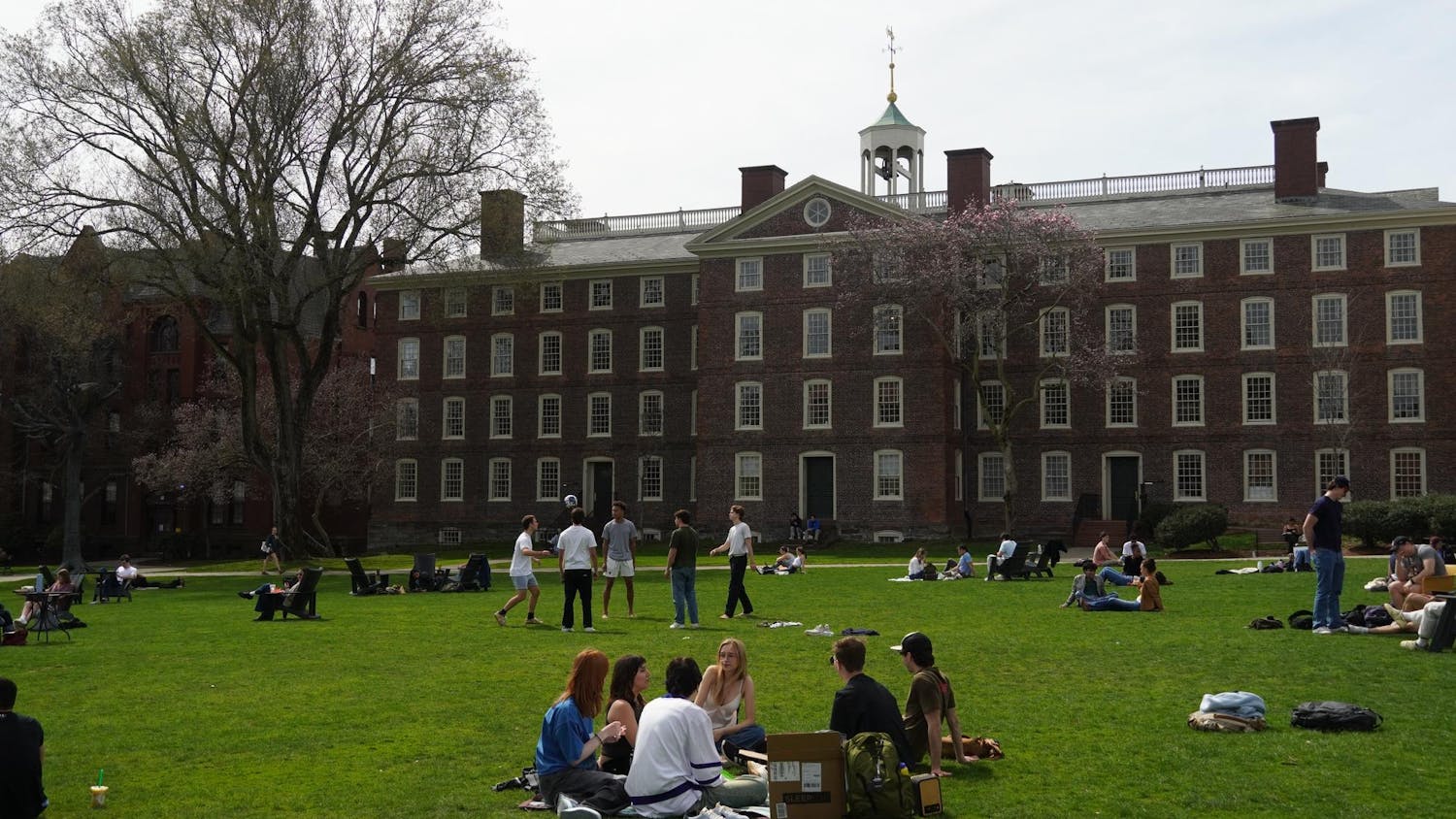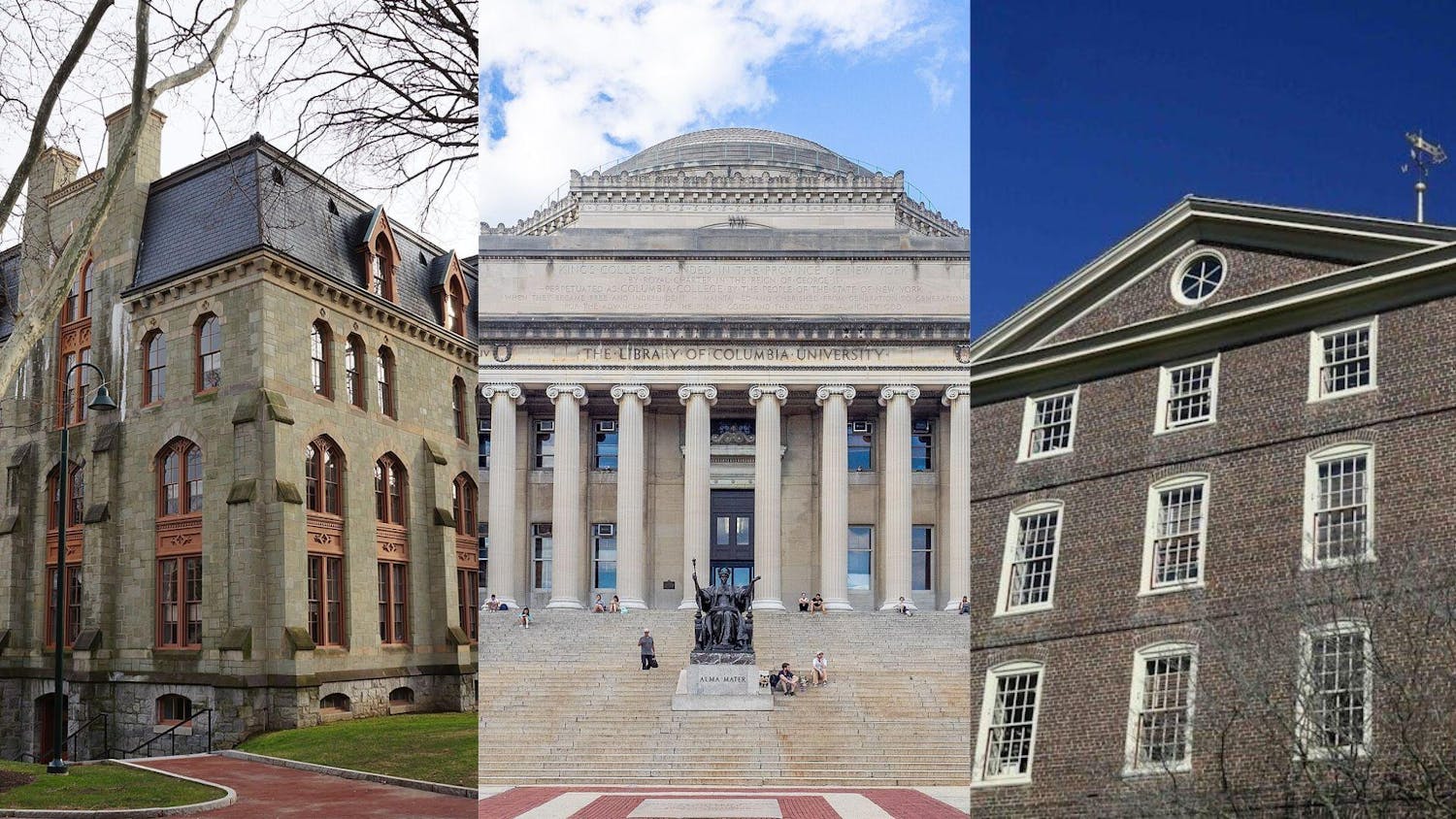The Corporation, the University’s highest governing body, granted President Christina Paxson P’19 a second five-year term Thursday, extending her tenure to 2021.
“The support for President Paxson was unanimous — there was never a thought of not renewing (her) contract,” said Chancellor Samuel Mencoff ’78 P’11 P’15.
In reaching their decision, Corporation members spoke to 59 people, including current Corporation members, several of the academic deans and a number of faculty and staff members, Mencoff said. The appointment, oversight, evaluation and reappointment of Paxson is one of the Corporation’s most important roles outlined in the University’s charter, Mencoff added.
Mencoff did not disclose how Paxson’s compensation as president may change during her second term, but as of 2014, her salary was $700,000 annually, according to the University’s 2014 tax returns. The Corporation hired an outside compensation consultant to ensure that president’s salary is competitive with peer institutions, Mencoff said.
Looking to the next five years: “We have a lot of work to do as a community, and I’m excited to have the honor and the opportunity to keep pushing forward,” Paxson said. “We have so much momentum right now.”
Paxson emphasized that she will prioritize undergraduate financial aid in her next term, for both low- and middle-income students.
“Honestly, we started off behind our peers, and we’ve fully caught up,” Paxson said in regards to financial aid. But she acknowledged the University must continue to make strides to fully address financial aid for low-income students. She did not commit to guaranteeing need-blind financial aid for international students, as this does not currently fit within the University’s financial ability, she said. Still, the University has increased the amount of financial aid for international students in recent years.
Alongside increasing financial aid, Paxson will also work to construct a new performing arts center, fundraise for 120 new endowed faculty chairs and pursue many of the goals outlined in the Diversity and Inclusion Action Plan, which she said has become a national model for similar plans at other universities.
“Plans like this can sometimes lose momentum,” she said. But the DIAP will remain a central University focus in her next term, she added.
Beyond her administrative roles, Paxson will continue to strengthen her relationship with the University community over the next five years. “It takes time to get to know students,” Paxson said, highlighting the difficulty in effectively communicating with a community of 9,000 people.
“I think she’s done a remarkably good job in setting a tone for the University and making people feel welcome,” said Professor Emeritus of Engineering Barrett Hazeltine. “It’s tough being president of Brown because we’re competing with schools with much larger endowments,” he added. Hazeltine is impressed with Paxson’s focus on undergraduate and graduate education and her involvement in the community, he said.
Student favor toward Paxson has positively shifted since she began her tenure. The percentage of students who strongly or somewhat disapprove of how Paxson is handling her administration decreased from about 25 percent in Spring 2015 to around 10 percent in Fall 2016, according to Herald polling data.
“I don’t know why approval ratings change that much over time … I don’t really worry about (it) that much,” Paxson said. She added that the administration may not always agree with students, but it supports them.
Some students have voiced concerns about Paxson’s growth of graduate programs in the past, but she defended their role as invaluable to the University. “I don’t see undergraduate and graduate education as being at odds with each other. It is not a zero-sum game if you do it right,” she said.
Cameron Johnson ’17, a member of the Brown University Community Council, said he hopes that in Paxson’s next term, the University will “boldly (lead) the stand against all threats to freedom and humanity.” The most successful moments of Paxson’s first term involved collaboration with students, he added. Whether the University continues this practice will determine the success of her next term, he said.
“The country is very divided,” Paxson said, addressing her role as president during the new Trump administration. “I haven’t seen divisions on issues of race, class and gender … like this in my lifetime,” she added.
The University will have to forcefully articulate its values in the coming years, Paxson said. She highlighted concerns about federal research funding for environmental issues and women’s reproductive health.
“President Paxson is the voice of Brown University to the outside world,” Mencoff said, adding that he places his full faith in her leadership in handling conflicts that may arise.





